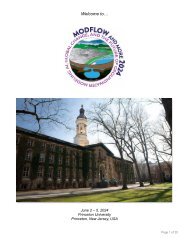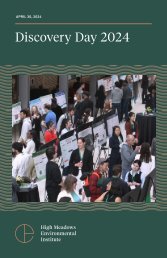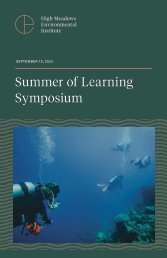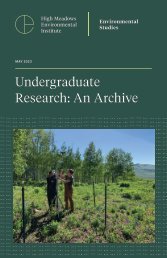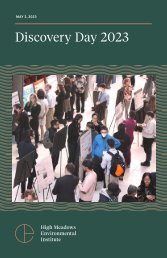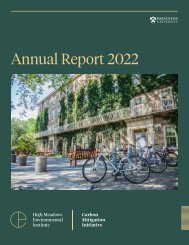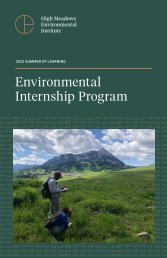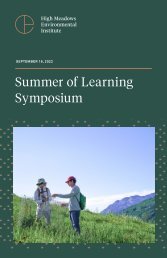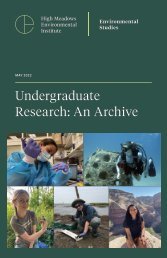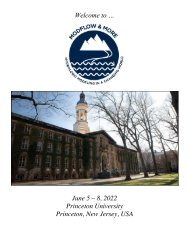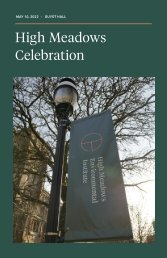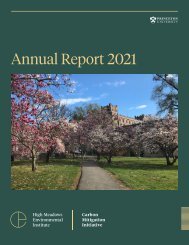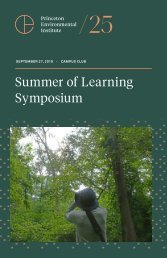Environmental Internship Program - 2023 Booklet
Create successful ePaper yourself
Turn your PDF publications into a flip-book with our unique Google optimized e-Paper software.
Cole Strupp ’26<br />
MOLECULAR BIOLOGY<br />
Certificates: Global Health and Health Policy,<br />
Quantitative and Computational Biology<br />
FOOD SYSTEMS<br />
AND HEALTH<br />
PROJECT TITLE<br />
Health and Conservation<br />
at the Human-Domestic<br />
Animal-Wildlife Interface<br />
in Madagascar<br />
ORGANIZATION(S)<br />
Metcalf Lab,<br />
Department of Ecology<br />
and Evolutionary Biology,<br />
Princeton University<br />
LOCATION(S)<br />
Antananarivo,<br />
Madagascar; Betampona<br />
Natural Reserve,<br />
Madagascar<br />
MENTOR(S)<br />
C. Jessica E. Metcalf,<br />
Associate Professor of<br />
Ecology and Evolutionary<br />
Biology and Public Affairs;<br />
Fidisoa Rasambainarivo,<br />
Postdoctoral Research<br />
Associate, High Meadows<br />
<strong>Environmental</strong> Institute;<br />
Benjamin Rice, Associate<br />
Research Fellow, High<br />
Meadows <strong>Environmental</strong><br />
Institute<br />
I researched the prevalence of the zoonotic<br />
parasite Toxoplasma gondii among native<br />
carnivores in Madagascar’s rainforests. T. gondii<br />
is an invasive pathogen in Madagascar. The<br />
parasite only reproduces sexually in cats, which<br />
were introduced to the island relatively recently<br />
with the arrival of humans. As deforestation and<br />
settlement pushes humans (and their pet cats)<br />
closer to the island’s endemic carnivores, the<br />
threat posed by toxoplasmosis could intensify.<br />
To assess the current prevalence of the disease, I<br />
spent nearly a month in the Malagasy rainforest<br />
trapping and tracking native carnivores in order<br />
to perform physical examinations and collect<br />
blood samples. I also helped trap and examine<br />
lemurs, poultry and rodents to assist other<br />
researchers at the reserve. In the lab, I tested<br />
heart tissue for T. gondii infection by performing<br />
DNA extraction, polymerase chain reaction<br />
amplification and gel electrophoresis. The project<br />
concluded with data analysis in the program R.<br />
This internship exposed me to the excitement<br />
and challenges of fieldwork and scientific<br />
inquiry as a whole. I gained appreciation for the<br />
interconnectedness of environmental, animal<br />
and human health. I plan to continue studying<br />
disease ecology in future.<br />
* This internship is connected to the HMEI<br />
Biodiversity Grand Challenges project, “Biodiversity<br />
Conservation and Health at the Human-Domestic<br />
Animal-Wildlife Interface in Madagascar.”<br />
64




